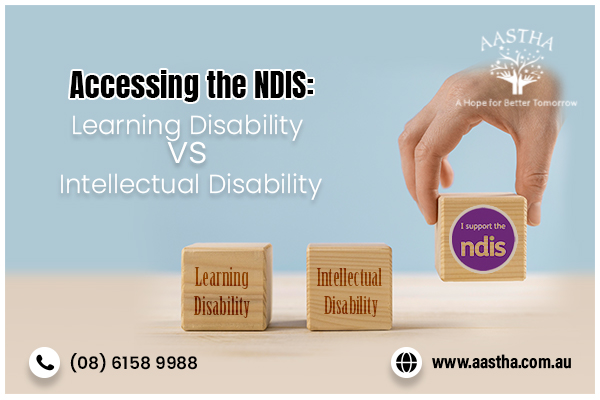- (08) 6158 9988, 0478 291 904
- 26 Kearns Crescent. Ardross. WA. 6153
- connecting@aastha.com.au

Educating ourselves about the incredibly diverse nature of disability is a very important step towards building a more inclusive world for differently-abled individuals. Depending on the disability, the health care needs of the individual may vary throughout their life. There are even disabilities that are not immediately evident to able people. Individuals suffering from those conditions often face stigma from society since their condition is invisible to our eyes. Since disability support schemes like the National Disability Insurance Scheme (NDIS) have certain eligibility requirements and do not fund all kinds of support, we need to be aware of the various disability conditions and their nuances to access various funded supports.
The distinction between learning disabilities and intellectual disabilities is very important when it comes to accessing the NDIS. A learning disability is a condition that interferes with an individual’s ability to learn by affecting their reading, writing and comprehension skills. Dyslexia is a very common learning disability and it can be hard to diagnose learning disabilities unless the condition is very acute. Intellectual disabilities are neurodevelopmental disorders that affect the intellectual as well as adaptive functioning of a person. According to section 24 of the NDIS Act, intellectual disabilities diagnosed as “moderate, severe or profound in accordance with current DSM criteria” are most likely to qualify for the NDIS. But learning disabilities like dyslexia are not covered under the NDIS unless they co-occurred with developmental delay or Autism.
NDIS and its eligibility requirements can be difficult to understand if you are new to the system. Registered NDIS service providers like Aastha can help you navigate the nuances of the scheme and access the help you need. We are based in Perth but our services are available all over the cities of WA. Contact us today and let us help you make your NDIS journey easier and hassle-free.
